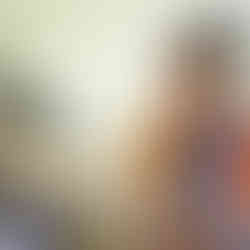Keeping At-Risk Girls in School: A Solution in Kenya
- Sanaa Zakariya

- Aug 17, 2024
- 4 min read
Updated: Nov 29, 2025
Our young colleague Sanaa speaks out about the need to help teen girls around the world who are struggling to stay in school. In disadvantaged communities, a modest gift of a sanitary kit can make all the difference.

by Sanaa Zakariya
Every child around the world deserves proper access to quality education no matter their background, financial stability, or gender. In the Maasai Mara region of Kenya there is a huge problem of students not being able to complete their education, and especially for girls, often due to the issue of their menstruation cycles. This is because in rural areas of Kenya, like the Maasai Mara, it becomes a problem for girls once they reach the age of puberty as they do not have access to proper sanitary products, like tampons or pads.

Since most girls do not have sanitary products, they end up skipping 4 or 5 days of school every month during their cycle. This has created an untenable situation for girls since they typically miss so much class time that they end up dropping out of school.
A widespread problem...
This is more commonly known as "period poverty" and is a serious problem in countries like Kenya where there is already a severe lack of education for girls. Unicef has estimated that 20 million girls are currently at risk of dropping out of school for this reason. Most of the families in the Mara make just a few dollars a day and live on a mainly livestock economy, and the families are unable to afford items such as pads or tampons. Menstrual Hygiene Day, an organization that promotes menstrual health, did a study which showed that 65 percent of women in Kenya cannot afford sanitary items. Most of the time when girls get their period, they are forced to skip school because they do not have hygienic sanitary materials to deal with it at school. In some schools, girls share the few sanitary products they have, but that is extremely unhygienic and often causes STDs or other diseases.
Another major issue for school-age girls is the cultural and societal issue of female genital mutilation, otherwise known as FGM. Kenya outlawed the practice of FGM in 2011, but 1000s of families still participate in the illegal and harmful practice in more rural and remote areas where it is difficult for the government to enforce the law. Girls who drop out of school here often go through FGM and get married at a young age. The cycle then continues year after year, resulting in few girls being educated in most tribal regions.
An effective solution...
The women of the Oliveseed Women's Work Center are making washable fabric sanitary kits that are proven to keep girls in school for 2 to 3 years.
As an affiliate of the Save a Girl (SaG)™ program of The Global Uplift Project, Oliveseed uses tried and true patterns for making the kits. For this article, I interviewed Brenda Birrell from SaG, who designed the kits. She reported that these kits made in sewing centers around the world have helped keep tens of thousands of girls in school in East Africa, Cameroon, and Nepal. When folded up, they look like a handkerchief or napkin, which makes it easy to carry so the girls are not teased by the boys in their school or their male family members. They are also washable, waterproof, and made with comfortable cotton and flannel fabric. Now the women of Oliveseed's Work Center make them to the SaG standards and with fabrics the girls like, and the great thing is that they're for girls right in their own community.
This year, Oliveseed is running a fundraising campaign to raise money to make 1000s of sanitary kits for Kenyan schoolgirls. For just $12 people can fund a kit, which covers the materials and pays the women fairly; buys soap, panties, and washcloths for the girl too; and helps sustain the Work Center. It is such a simple way to make sure girls can stay in school and are able to complete their education, and at the same time allows the Maasai women to make an income. I hope there will be many contributors to this campaign over the next few months so we can get more girls to stay in school and reach their full potential in their lives.

About the Author
















Comments